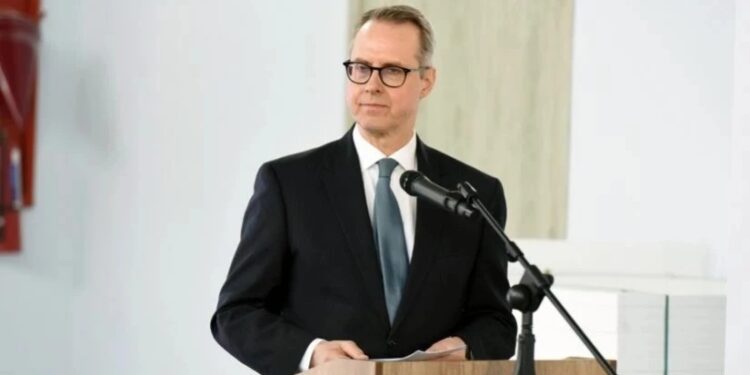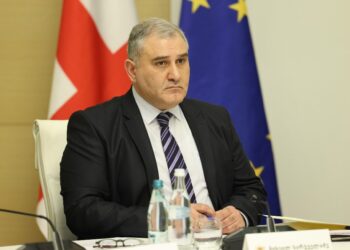The German Foreign Ministry has issued a firm statement condemning what it calls “false narratives” spread by the Georgian government regarding the European Union’s positions and policies. Berlin, along with the broader EU, is urging the Georgian leadership to revise its political direction and tone down anti-Western rhetoric.
“Germany and the European Union reiterate their call on the Georgian government to cease spreading false narratives regarding Europe’s positions and policies, and to revise its current political course,” reads the statement released on Wednesday.
The ministry also expressed deep concern over what it described as “aggressive rhetoric” from members of the ruling Georgian Dream party toward the EU and its member states. In particular, the statement condemned recent attacks on Germany’s Ambassador to Georgia, branding them “unacceptable.”
Background and Tensions
The statement follows escalating tensions between Tbilisi and its Western partners over the controversial “foreign agents” bill reintroduced by the Georgian government. The legislation, widely seen as a replica of a Russian law used to silence civil society and independent media, has sparked mass protests across Georgia and criticism from the EU, U.S., and rights organizations.
German Ambassador Peter Fischer recently became a target of public criticism from Georgian Dream figures after voicing concern about the bill and Georgia’s democratic backsliding. The backlash against Fischer prompted widespread condemnation from European diplomats and renewed fears of deteriorating ties between Georgia and the West.
The EU granted Georgia candidate status in 2023, with strong conditions tied to democratic reforms and rule of law. Critics argue the current government’s direction contradicts those commitments, jeopardizing Georgia’s path to full EU membership.
A Crossroads for Georgia
Germany’s strong wording signals growing frustration in Brussels and key EU capitals over what they see as Tbilisi’s pivot away from European values. While the Georgian government insists it remains committed to EU integration, its rhetoric and legislative actions continue to raise red flags among its Western allies.
The situation remains fluid, with diplomatic pressure mounting and public demonstrations showing no sign of abating.














